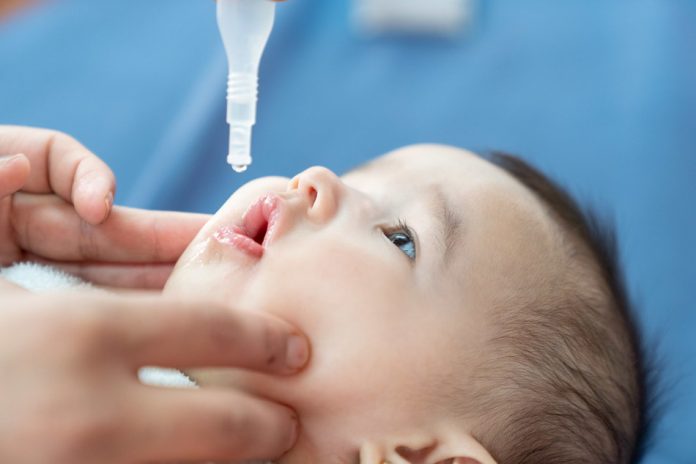
Mass measles immunization campaigns suspended in 25 largely high-burden countries due to pandemic
As the world waits desperately for a vaccine, the COVID-19 pandemic is continuing to surge across the globe. Millions of children are in danger of missing life-saving vaccines against measles, diphtheria and polio due to disruptions in immunization services. At last count, most countries had suspended mass polio campaigns and 25 countries had postponed mass measles campaigns, as per recommended guidance
Even before the COVID-19 pandemic, measles, polio and other vaccines were out of reach for 20 million children below the age of one every year. Over 13 million children below the age of one globally did not receive any vaccines at all in 2018, many of whom live in countries with weak health systems. Given the current disruptions, this could create pathways to disastrous outbreaks in 2020 and well beyond.
|
Top ten high-income countries where children not vaccinated with the first measles vaccine dose 2010 – 2018 |
|
1. United States: 2,868,000 |
|
2. France: 680,000 |
|
3. United Kingdom: 585,000 |
|
4. Italy: 482,000 |
|
5. Japan: 386,000 |
|
6. Canada: 363,000 |
|
7. Germany: 195,000 |
|
8. Australia: 155,000 |
|
9. Chile: 155,000 |
|
10. Spain: 141,000 |
An estimated 182 million children missed out on the first dose of the measles vaccine between 2010 and 2018, or 20.3 million children a year on average, according to a UNICEF analysis. This is because the global coverage of the first dose of measles stands only at 86 per cent, well below the 95 per cent needed to prevent measles outbreaks.
Widening pockets of unvaccinated children led to alarming measles outbreaks in 2019, including in high-income countries like Canada, the US, UK and France.
According to UNICEF Canada’s Canadian Index of Child and Youth Well-being, at age 2, only 90 per cent of children in Canada have had at least one dose of measles vaccine. This falls below the level required for population protection, and falls behind most other wealthy countries.
“UNICEF procures vaccines for 45 per cent of the world’s children and is extremely concerned about disruptions to immunization due to COVID-19,” said David Morley, President & CEO of UNICEF Canada. “Immunization is the key to ending vaccine-preventable child deaths and giving children a healthy childhood with the chance to grow up and reach their full potential. Immunization is the right of every child and should reach every child.”
Among low-income countries, the gaps in measles coverage before COVID-19 were already alarming. Between 2010 and 2018, Ethiopia had the highest number of children under one year of age who missed out on the first dose of measles, at nearly 10.9 million. It was followed by the Democratic Republic of the Congo (6.2 million), Afghanistan (3.8 million), Chad, Madagascar and Uganda with about 2.7 million each.
Beyond measles, the immunization gaps were already quite dire, according to new regional profiles developed by UNICEF. In Africa, more children have missed out on vaccines over the past years due to rising number of births and a stagnation in immunization services. For example, in West and Central Africa, coverage has stagnated at 70 per cent for DTP3 – which is the lowest among all regions – at 70 per cent for polio, and at 71 per cent for measles. This has led to repeated outbreaks of measles and polio in countries such as the Democratic Republic of the Congo. Meanwhile, in South Asia, an estimated 3.2 million children did not receive any vaccines in 2018. In Eastern and Southern Africa, the number of unvaccinated children has remained almost the same for the last decade, at around 2 million. All regions are now also battling COVID-19 outbreaks.
“The stakes have never been higher. As COVID-19 continues to spread globally, our life-saving work to provide children with vaccines is critical,” said Robin Nandy, UNICEF Principal Adviser and Chief of Immunization. “With disruptions in immunization services due to the COVID-19 pandemic, the fates of millions of young lives hang in the balance.”
UNICEF is sending critical vaccine supplies to immunize children, where possible, in areas with outbreaks and to replenish their routine supplies. In the Democratic Republic of the Congo, for example, UNICEF is supporting the Government with vaccine supplies and protective equipment to continue immunization activities in North Kivu province, where over 3,000 cases of measles were reported since January 1. And in Uganda, UNICEF procured 3,842,000 doses of bivalent oral polio vaccine (bOPV) to immunize 900,000 children below the age of one year. Children receive three doses of the polio vaccine before they celebrate their first birthday.
As the world races to develop and test a new COVID-19 vaccine, UNICEF and partners in the Measles & Rubella Initiative and Gavi, the Vaccine Alliance are calling on governments and donors to:
- Sustain immunization services while keeping health workers and communities safe;
- Start planning to ramp up vaccinations for every missed child when the pandemic ends;
- Fully replenish Gavi, as the alliance supports immunization programmes in the future;
- Ensure that when the COVID-19 vaccine is available, it reaches those most in need.
“Children missing out now on vaccines must not go their whole lives without protection from disease,” said Dr. Seth Berkley, CEO, Gavi, the Vaccine Alliance “The legacy of COVID-19 must not include the global resurgence of other killers like measles and polio.”







